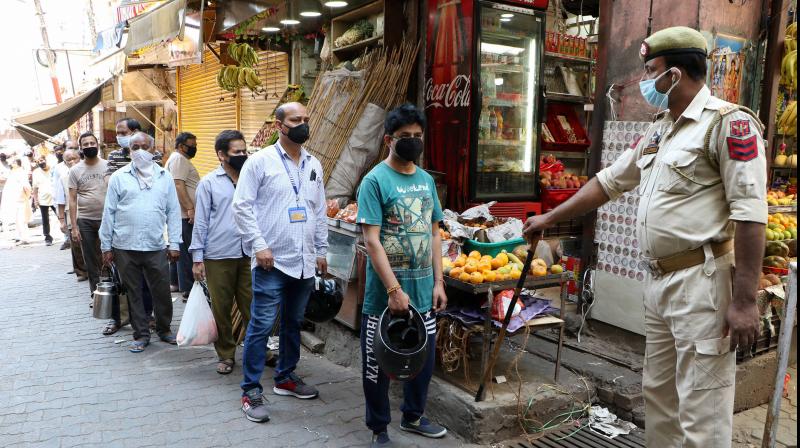
COVID tally to touch 46-lakh mark; govt to record data on post-recovery issues
India's COVID-19 caseload sprinted past 45 lakh and the death toll climbed to 76,271 with a record 96,551 infections and 1,209 fatalities being reported in a day, while the recoveries crossed 35 lakh on Friday, according to the Union Health Ministry data.

India’s COVID-19 caseload sprinted past 45 lakh and the death toll climbed to 76,271 with a record 96,551 infections and 1,209 fatalities being reported in a day, while the recoveries crossed 35 lakh on Friday, according to the Union Health Ministry data.
The total number of cases mounted to 45,62,414, while the recoveries surged to 35,42,663, the data updated at 8 am showed.
The total number of confirmed cases is steadily heading towards the 46-lakh mark, with more than 90,000 infections being reported every day.
The COVID-19 case fatality rate has further dropped to 1.67 per cent while the recovery rate was recorded at 77.65 per cent.
There are 9,43,480 active cases of COVID-19 in the country which comprises 20.68 per cent of the total caseload, the data stated.
India’s COVID-19 tally had crossed the 20-lakh mark on August 7, 30 lakh on August 23 and it went past 40 lakh on September 5.
According to the ICMR, a cumulative total of 5,40,97,975 samples have been tested up to September 10 with 11,63,542 samples being tested on Thursday.
Health ministry to document data on post-COVID complications
The Union Health Ministry has initiated an exercise to document data on post-COVID 19 complications as part of which the National Centre for Disease Control (NCDC) is likely to carry out a telephonic survey among recovered patients in the country using existing database.
The ministry has drafted a format for gathering the information on post-COVID-19 complications faced by patients from across states and union territories, sources said.
The Indian Council of Medical Research (ICMR) is concurrently working on developing a registry of post-COVID-19 sequelae to capture data on the same.
Related news: States must fix ‘fair’ ambulance charge for COVID patients: SC
Instances of patients facing post-COVID complications like respiratory, cardiovascular, neurological problems, immunological reactions among children and fibrosis in lungs have come to the fore within the country as well as abroad.
A committee of domain knowledge experts, known as joint monitoring group under the health ministry is currently working on a guidance note on possible complications that may afflict recovered patients. The guidance note would be issued to the states so that they can share it with the health facilities in their areas for patients getting discharged.
The assessment of post COVID sequelae symptoms includes respiratory manifestations like chronic cough, breathlessness, impaired renal function, cardiac injury, psychological issues, loss of taste and smell, weakness and poor endurance among others. Experts from AIIMS recently have highlighted the need to have post-COVID clinics at all tertiary care hospitals where recovered patients facing health issues can be checked to understand the impact of coronavirus on various organs of the body.
States obligated to implement Centre’s procedures on COVID-19, says SC
The Supreme Court Friday said states are obligated to implement the Centres standard operating procedure (SOP) on various aspects of COVID-19 including transporting a suspected or confirmed case.
The top court, hearing a PIL filed by organisation Earth alleging that exorbitant rates are being charged for ambulances from suspected and confirmed coronavirus patients, however made clear that states should fix this charge.
The Ministry of Health and Family Welfare has already issued the SOP in this regard and all states “will have to implement it”. “It is obligatory for all the states to follow the SOP and take appropriate measures with regard to augmenting the capacity of ambulances,” said the bench.

